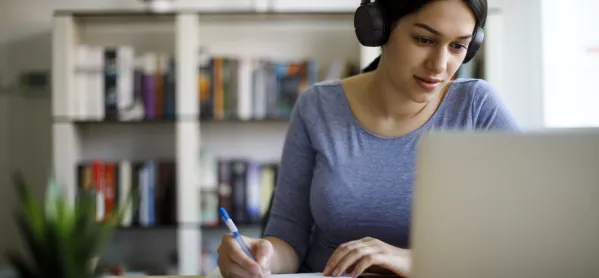WATCH: Pressure from scientists to delay school opening

Secondary schools should be kept closed in January to try and keep the R rate below 1, key government scientific advisors are reported to have warned.
In a meeting last week, ministers were told that even another lockdown would fail to keep the R rate below 1 in January if schools remained open; according to news website Politico.
The warning came from the Scientific Advisory Group for Emergencies (Sage), the key committee of scientists advising the government.
Sage found that closing secondary schools would have a higher impact on the R rate than closing primary schools.
Exclusive: New school opening delay agreed by ministers
Covid: Forces ready to go into schools to help Covid testing
January: ‘Pause’ January school opening, says academies leader
Separately, today Sage member Andrew Hayward, a professor of epidemiology at University College London, suggested that allowing pupils to return to schools would mean stricter restrictions in other areas of society.
He told BBC Radio 4’s Today programme: “We’ve had control measures that were previously controlling the old variant are not enough for this variant.
“And so if we want to control the new variant we are going to need much tighter restrictions.”
Professor Hayward said he thought schools would have to return “maybe a little bit later” but that it would mean “we’re going to have to have increased, strict restrictions in other areas of society to pay for that”.
Tes revealed this afternoon that secondary school return dates will be delayed by at least an extra week under a plan agreed by ministers, but yet to be signed off by Downing Street.
Another Sage member, Dr Mike Tildesley, associate professor in infectious disease modelling at the University of Warwick, told Times Radio: “What looks like is going to happen is possibly a slight delay to the start of term, and then ramping up mass testing to ensure that we rapidly detect cases - not just people showing symptoms but also asymptomatic cases so we can rapidly isolate children.”
And Professor Neil Ferguson, epidemiologist at Imperial College London, and a member of the government’s New and Emerging Respiratory Virus Threats Advisory Group (Nervtag) told BBC Radio 4’s World At One programme today: “Clearly nobody wants to keep schools shut.
“But if that’s the only alternative to having exponentially growing numbers of hospitalisations, that may be required at least for a period.”
The Independent Sage group also questioned school reopening plans today.
Speaking to Good Morning Britain, Zubaida Haque, a member of the Independent Sage group, said: “The key question is are schools safe enough right now? Has the government made schools safer and, in making it safer, can we then keep schools open?”
“The government has delayed opening Parliament because we are in a crisis situation but yesterday we had Michael Gove saying ‘No, it’s fine, we’re going to have schools open next week and we’ll have a staggered return’ and, frankly, that’s not acceptable, and that’s not safe.”
Should schools reopen next term?
- Good Morning Britain (@GMB) December 29, 2020
SAGE has advised the government to delay to keep rising infection rates under control.
Independent SAGE member @Zubhaque says schools cannot reopen until they are made safe with smaller classes and other measures. pic.twitter.com/qIQoEtBRDI
Asked how schools could be made safer, she said: “Since June, Independent Sage has been saying: we need to have smaller classrooms, we need children spread out across many more different classes, instead of 30 children in one classroom - social distancing is impossible in that way.
“We need better ventilation, face masks for secondary school children in classroom, we need more laptops for children so that they can do remote learning.”
Meanwhile a preliminary (not peer-reviewed) paper by researchers at the London School of Hygiene and Tropical Medicine suggests that unless primary and secondary schools and universities are closed it is unlikely that a lockdown will bring the R number down.
The paper says: “Our estimates suggest that control measures of a similar stringency to the national lockdown implemented in England in November 2020 are unlikely to reduce the effective reproduction number Rt to less than 1, unless primary schools, secondary schools, and universities are also closed.”
You need a Tes subscription to read this article
Subscribe now to read this article and get other subscriber-only content:
- Unlimited access to all Tes magazine content
- Exclusive subscriber-only stories
- Award-winning email newsletters
Already a subscriber? Log in
You need a subscription to read this article
Subscribe now to read this article and get other subscriber-only content, including:
- Unlimited access to all Tes magazine content
- Exclusive subscriber-only stories
- Award-winning email newsletters